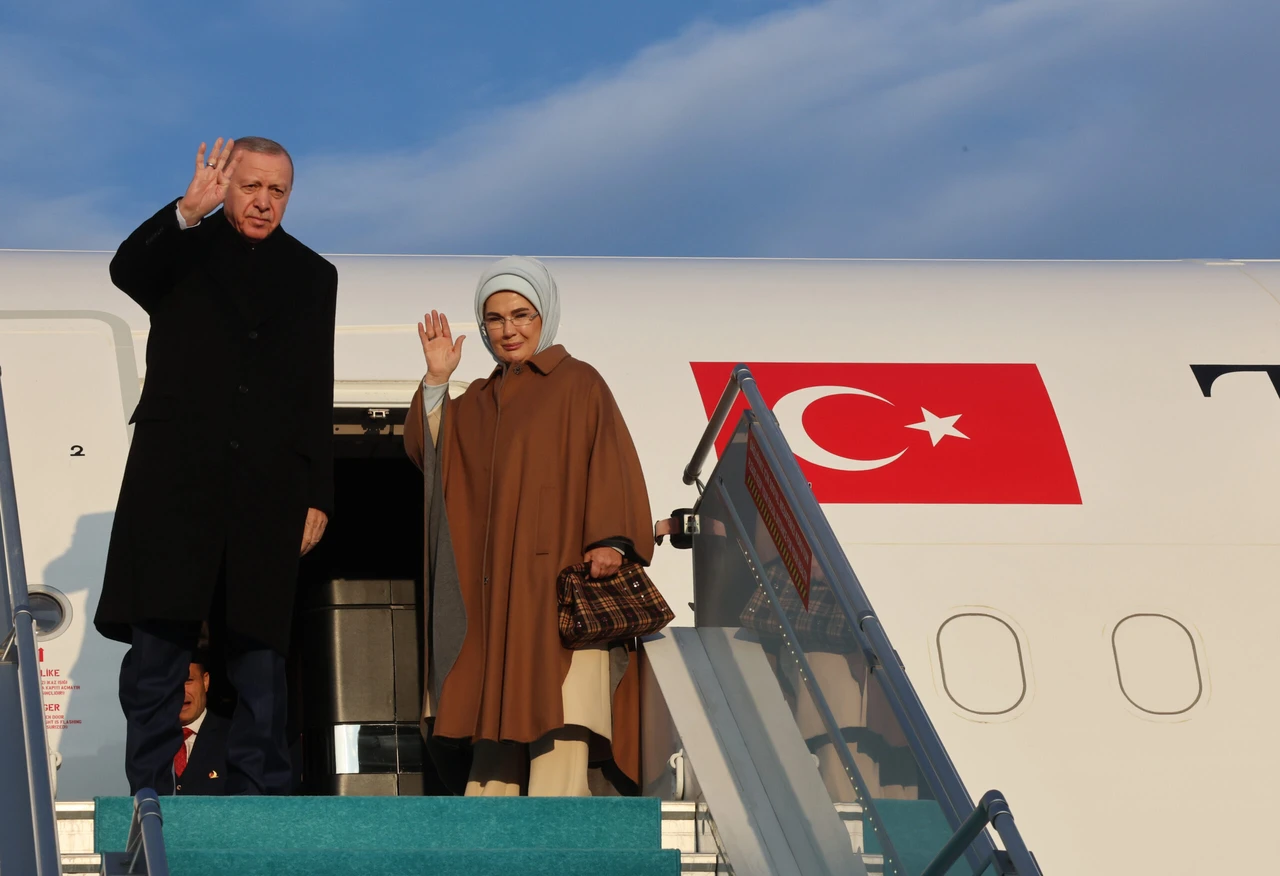UK defense chief warns of rising nuclear risks and calls for stronger deterrence
 Britain's Prime Minister Keir Starmer sits alongside Chief of the Defence Staff, Admiral Tony Radakin (L) and Vice-Chief of the Defence Staff, General Sharon Nesmith, during a meeting of Britain's Armed Forces Chiefs inside 10 Downing Street in central London on November 26, 2024. (AFP Photo)
Britain's Prime Minister Keir Starmer sits alongside Chief of the Defence Staff, Admiral Tony Radakin (L) and Vice-Chief of the Defence Staff, General Sharon Nesmith, during a meeting of Britain's Armed Forces Chiefs inside 10 Downing Street in central London on November 26, 2024. (AFP Photo)
The likelihood of a Russian attack on Britain or other NATO countries remains low, UK Chief of the Defense Staff Admiral Sir Antony Radakin said Wednesday, emphasizing the effectiveness of the alliance’s deterrence strategy.
“Russia knows the response would be overwhelming, whether conventional or nuclear,” Radakin said during a lecture at the Royal United Services Institute (RUSI), the UK’s leading defense think tank. “The strategy of deterrence by NATO works and is working. But it has to be kept strong and strengthened against a more dangerous Russia.”
Radakin also described the deployment of North Korean soldiers near Ukraine’s border on the Russian side as “this year’s most extraordinary development,” noting the deepening ties between Moscow and Pyongyang could lead to increased trade in technology and military expertise.
Highlighting the contrast between the UK and nations under immediate threat, Radakin remarked, “We are not facing an existential threat like Ukraine or Israel. We are protected by our maritime geography and the strength in depth of an alliance with a landmass stretching from the fringes of the Arctic to the Eurasian steppe.”
However, he cautioned that the global security environment is becoming more precarious. “The security outlook is more contested, more ambiguous and more dangerous than we have known in our careers,” he said, singling out the nuclear domain as a key area of concern.
Radakin argued that the world is entering a “third nuclear age,” marked by “multiple and concurrent dilemmas, proliferating nuclear and disruptive technologies, and the almost total absence of the security architectures that went before.” This phase follows an initial Cold War era defined by deterrence and a subsequent period focused on disarmament and counter-proliferation.
While praising the past successes of nuclear non-proliferation, Radakin warned that this achievement is now under threat from actions by Iran, North Korea, Russia, and China. He stressed the importance of Britain and the United States continuing to extend their nuclear umbrellas to allies to maintain global security.



